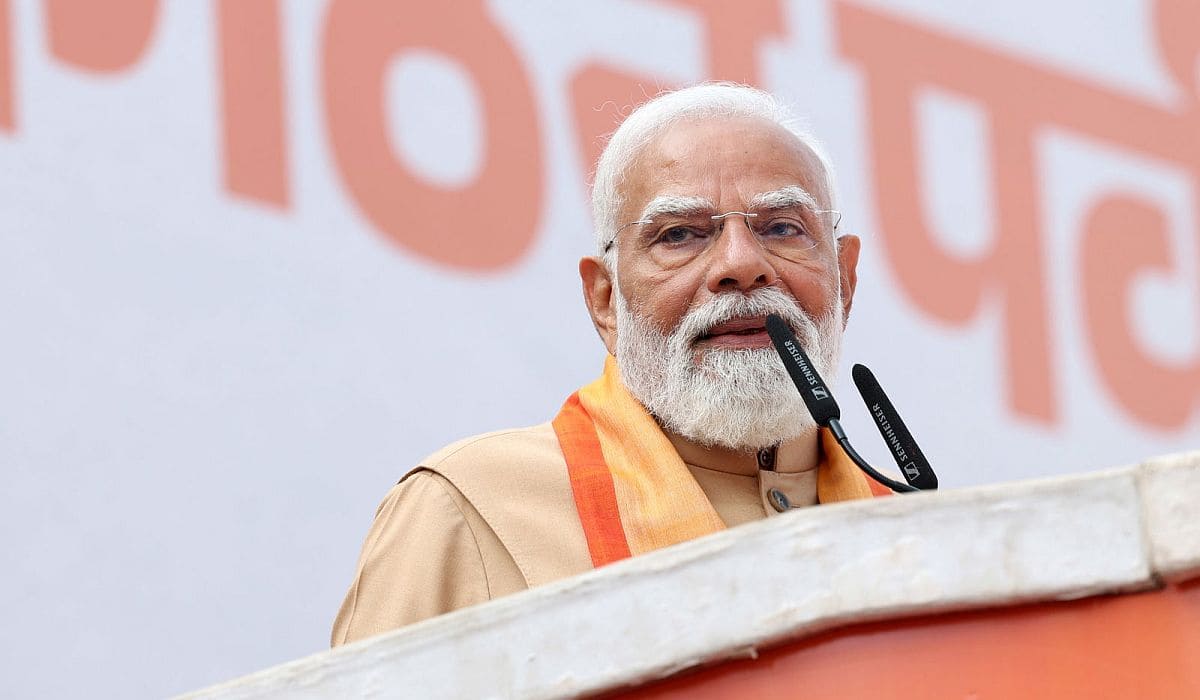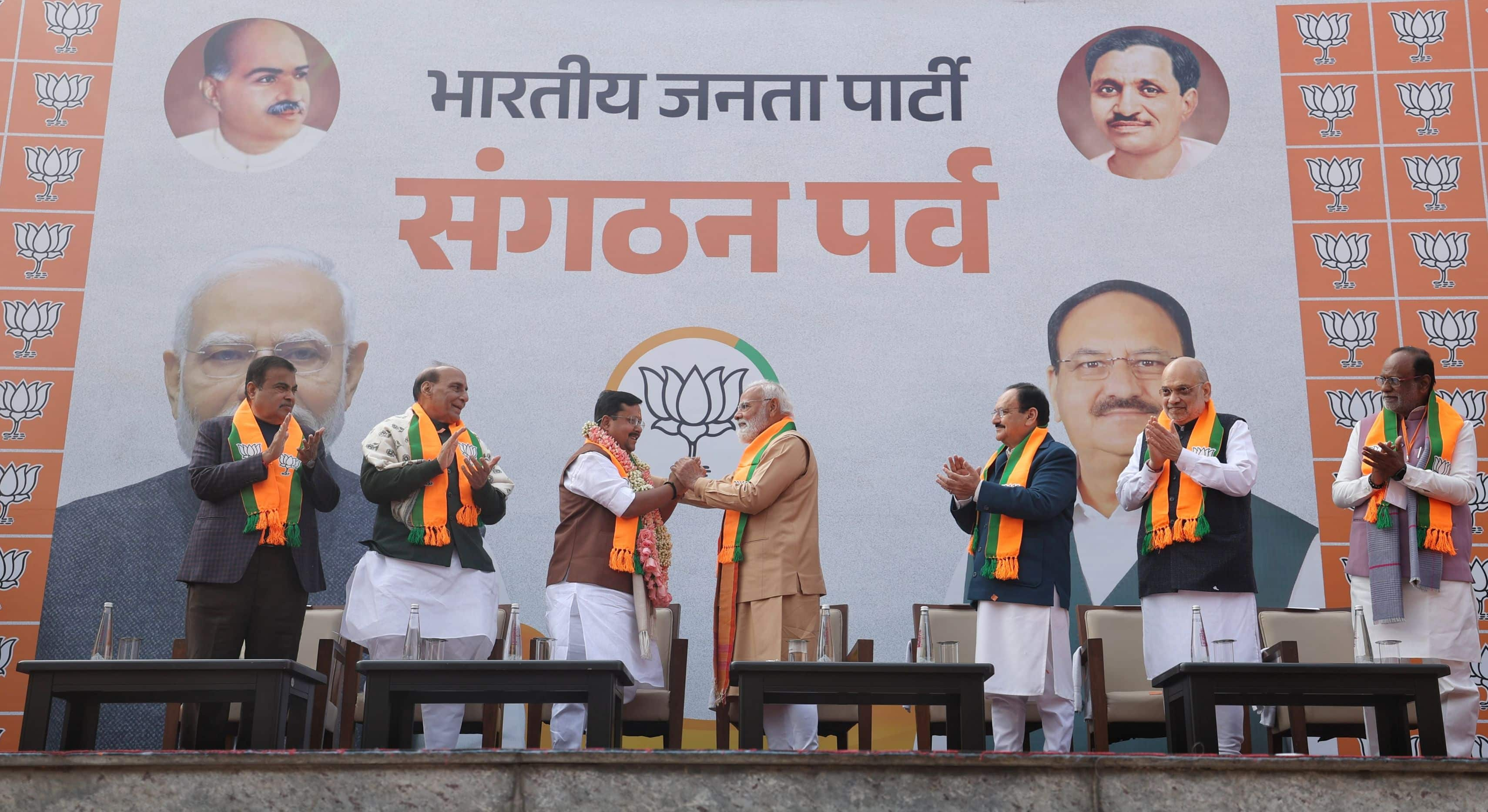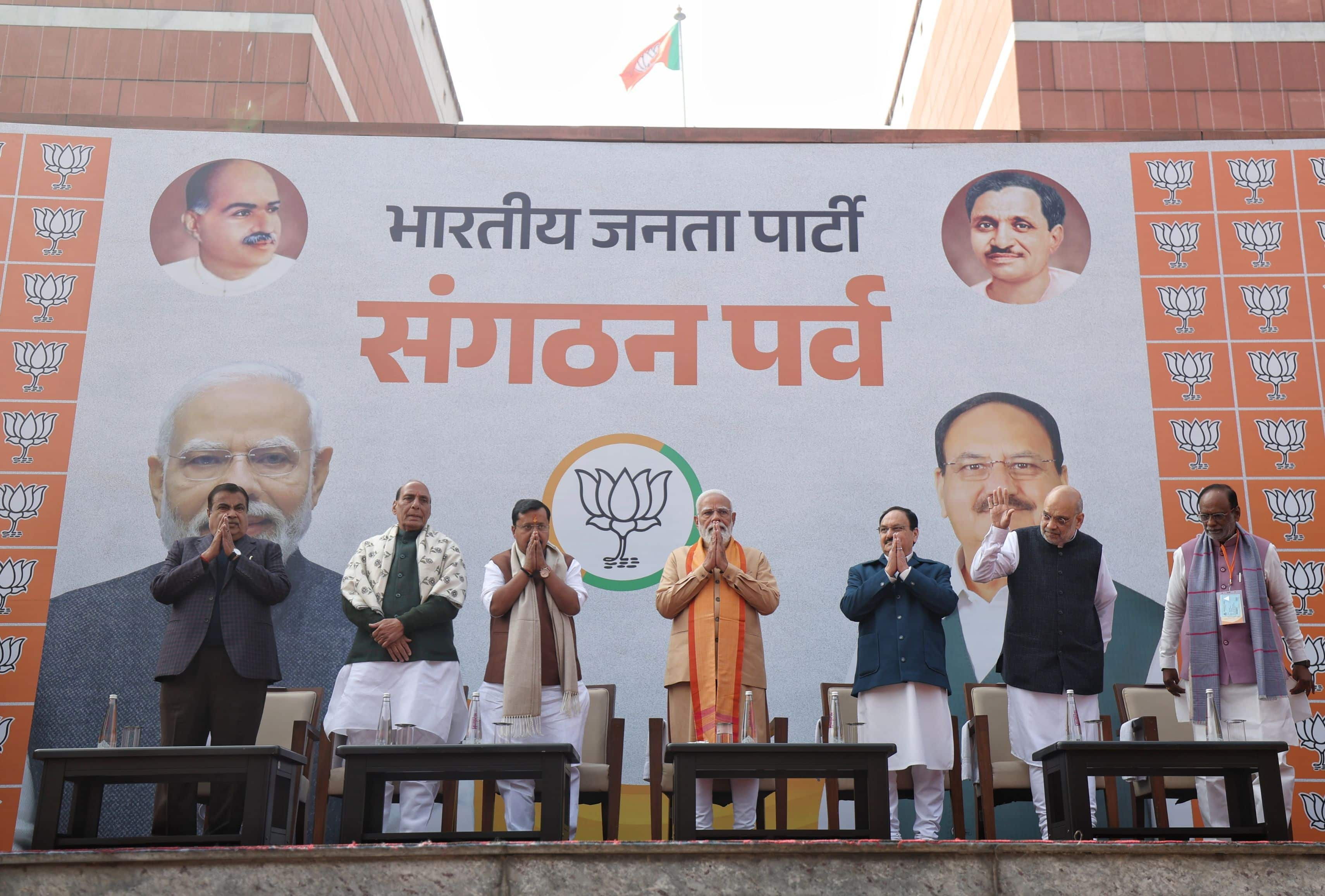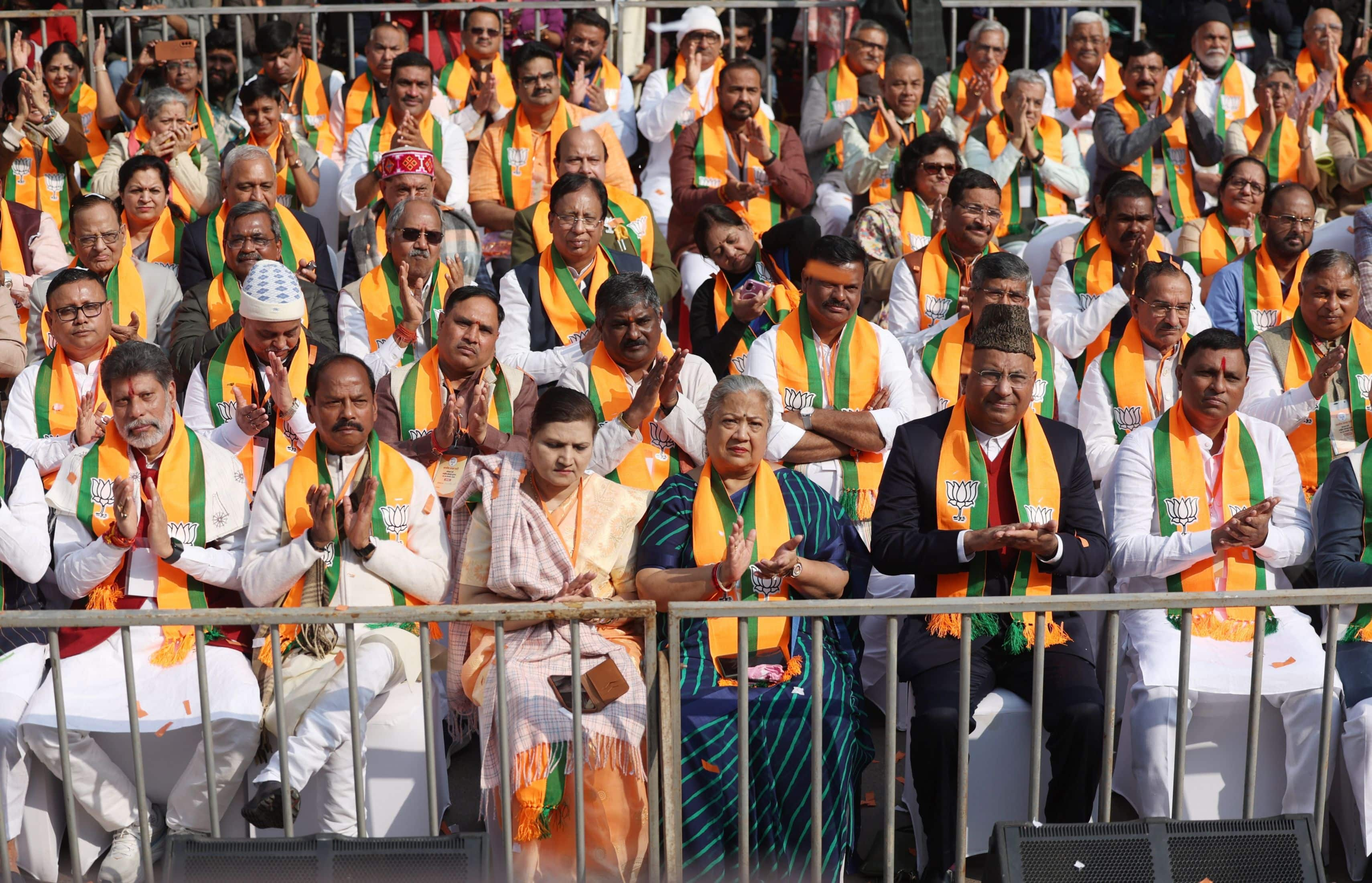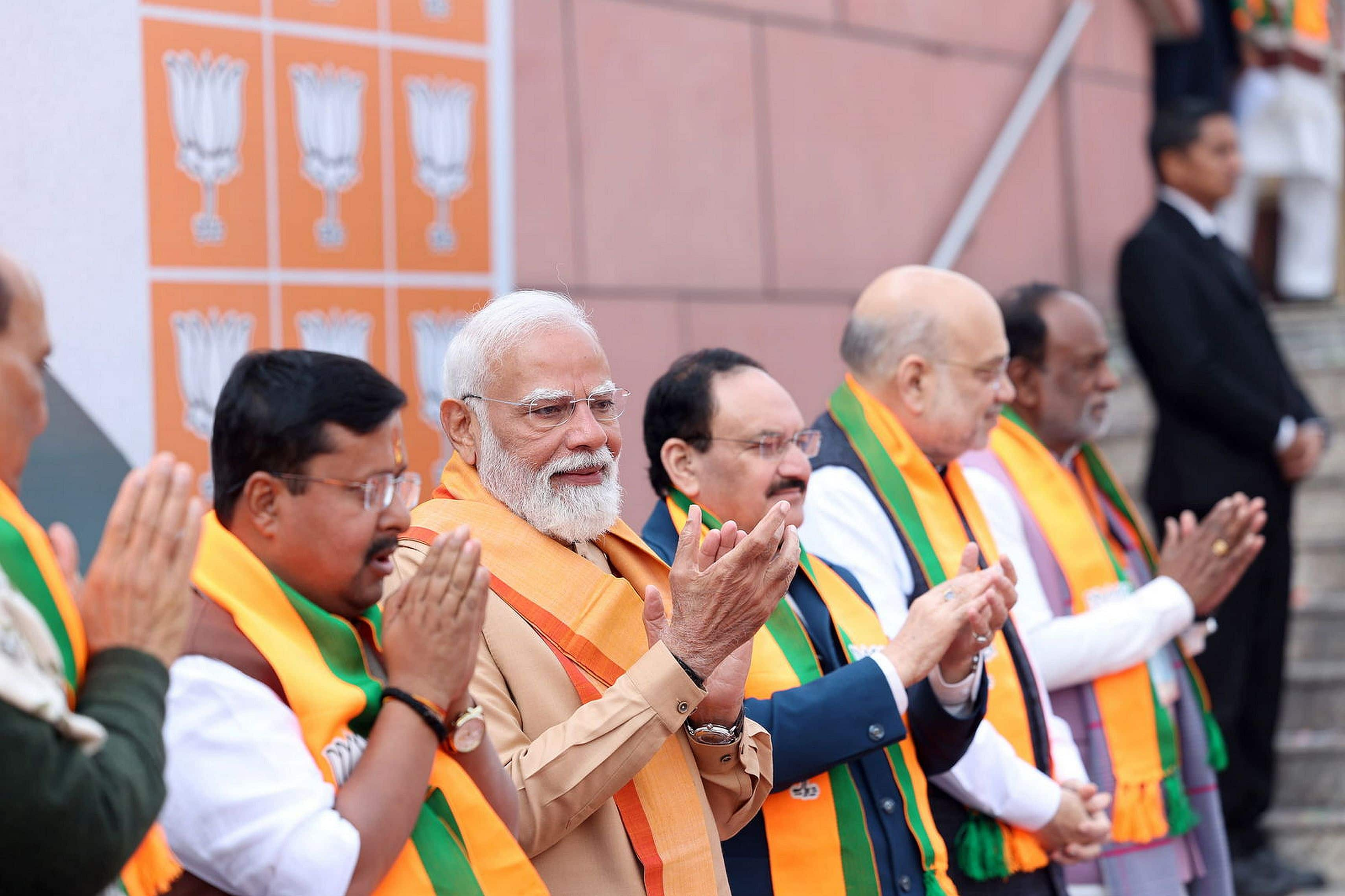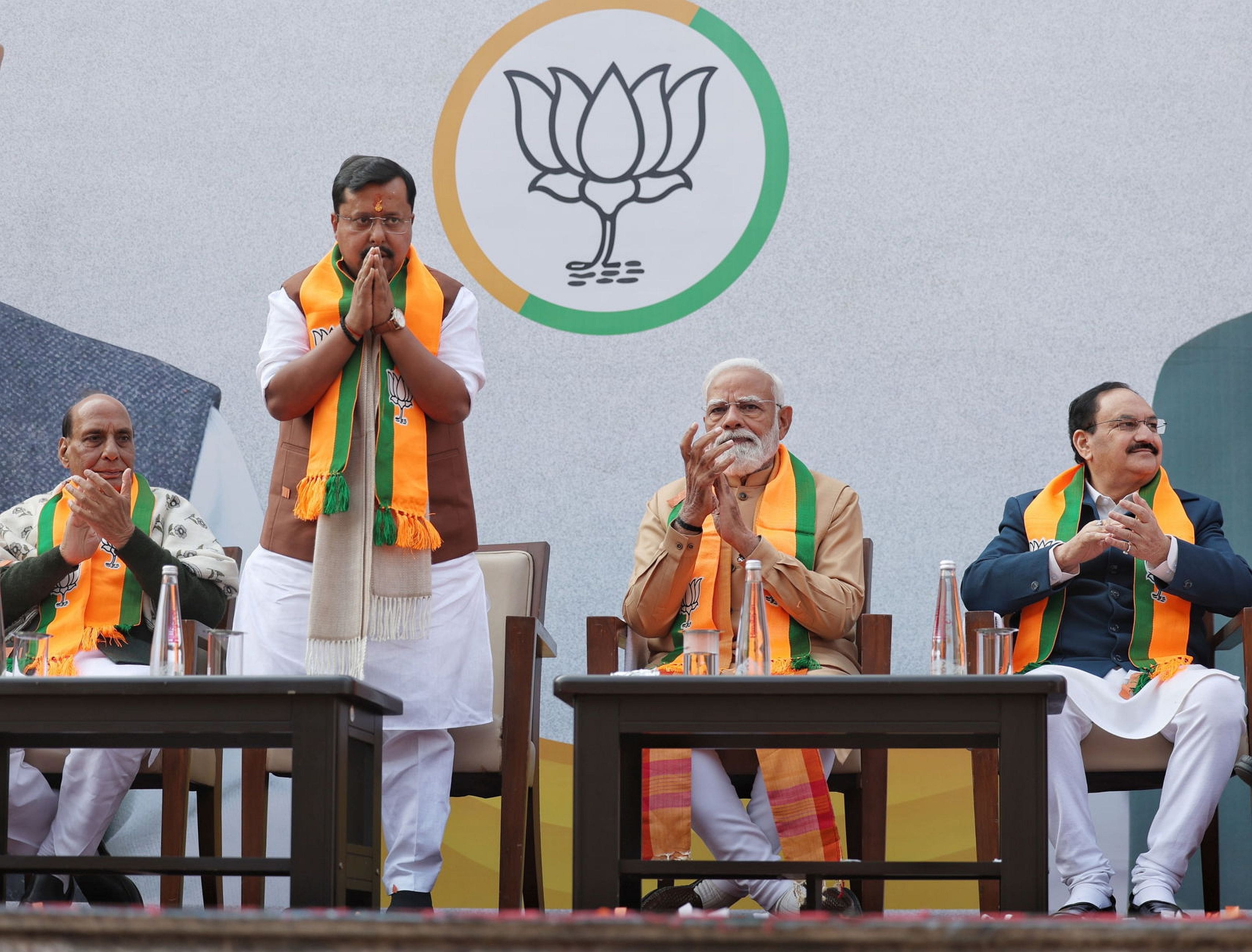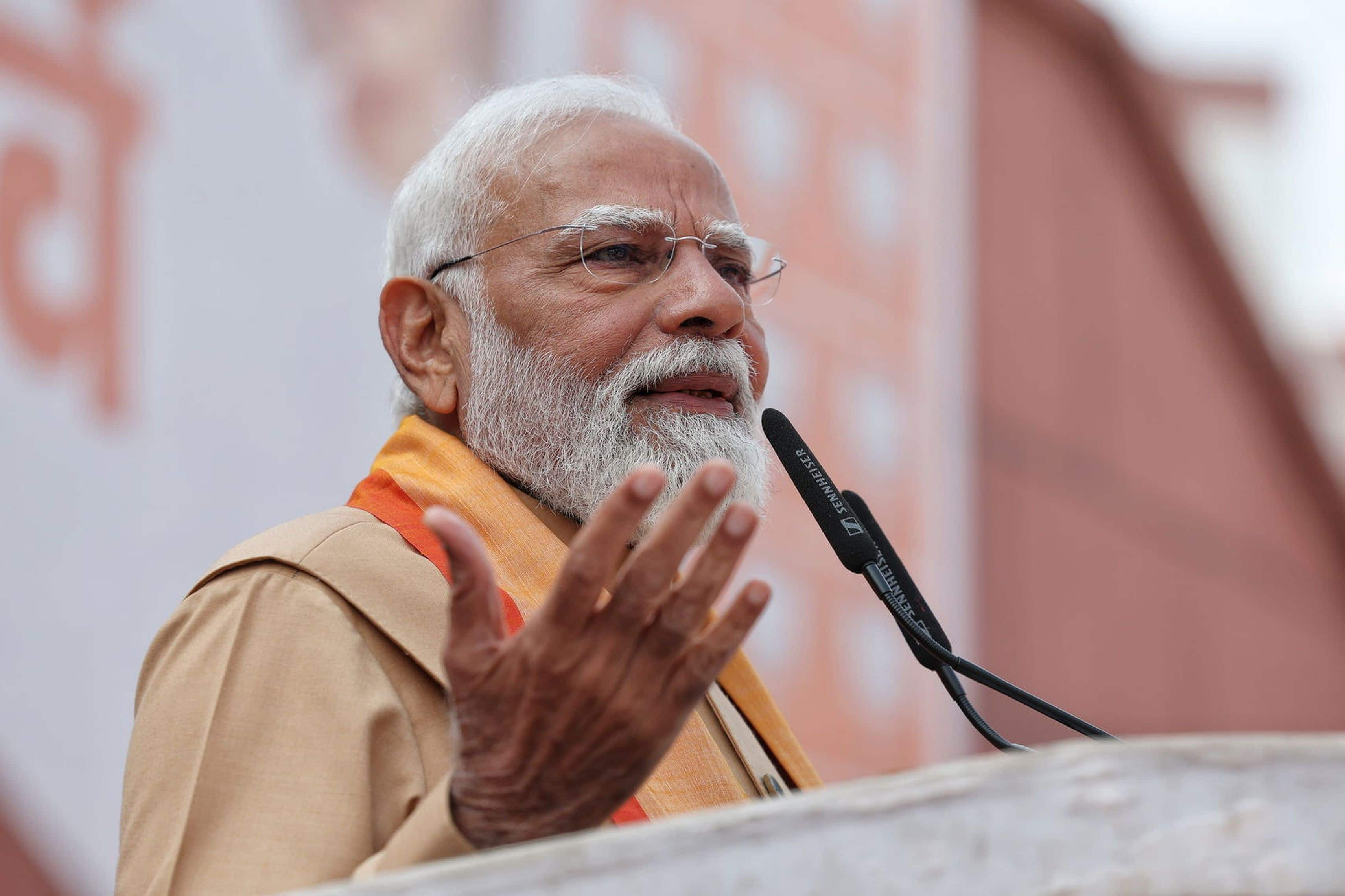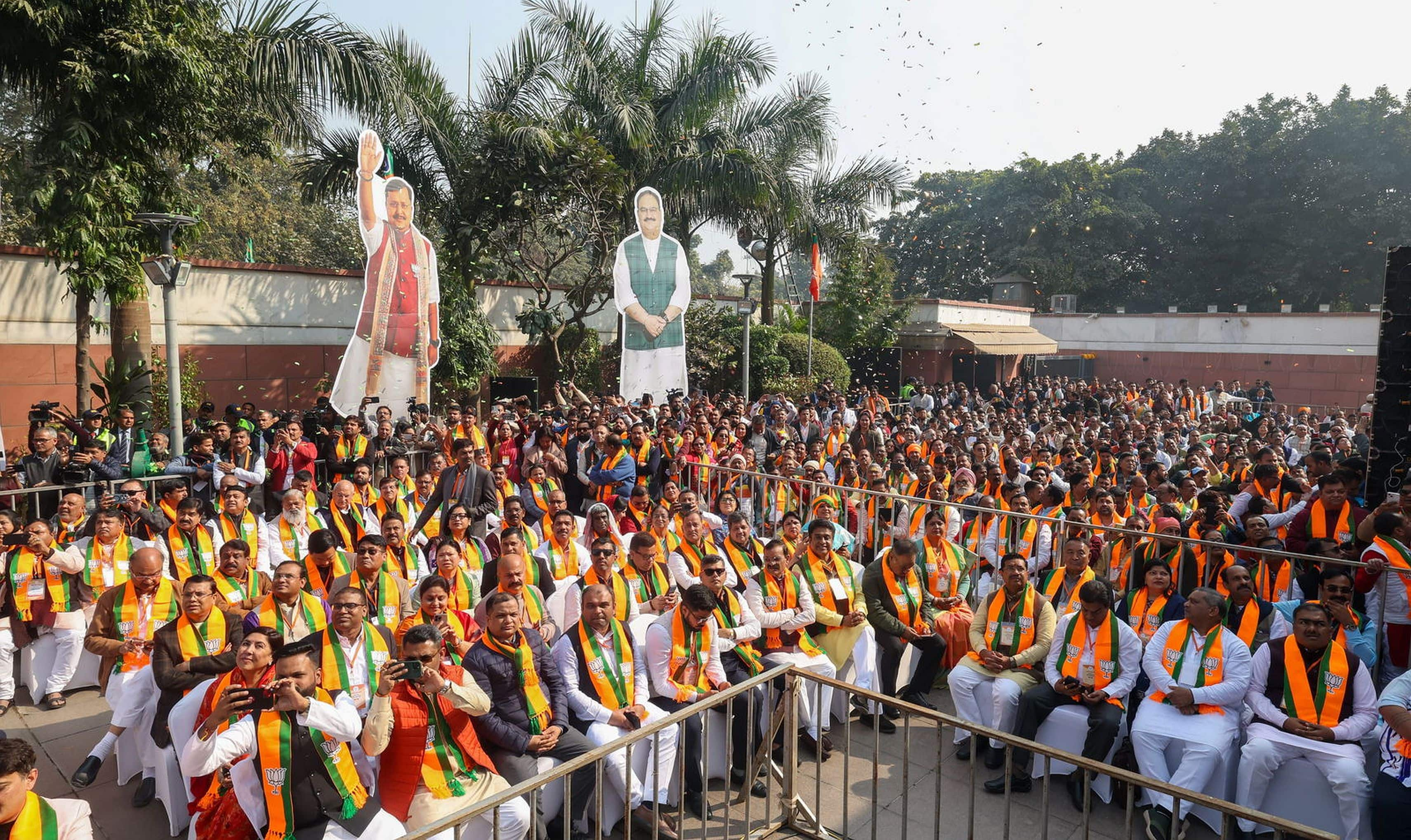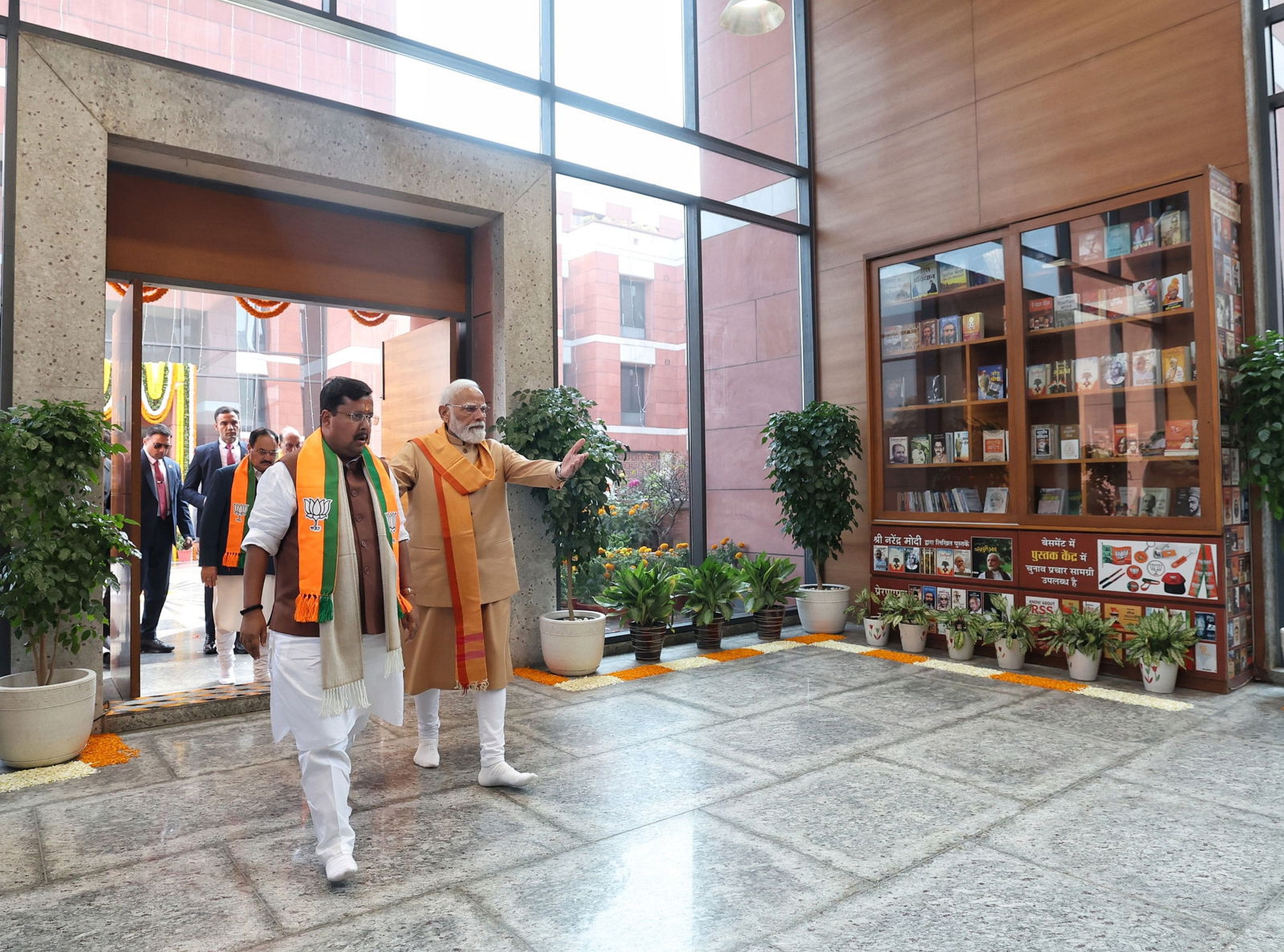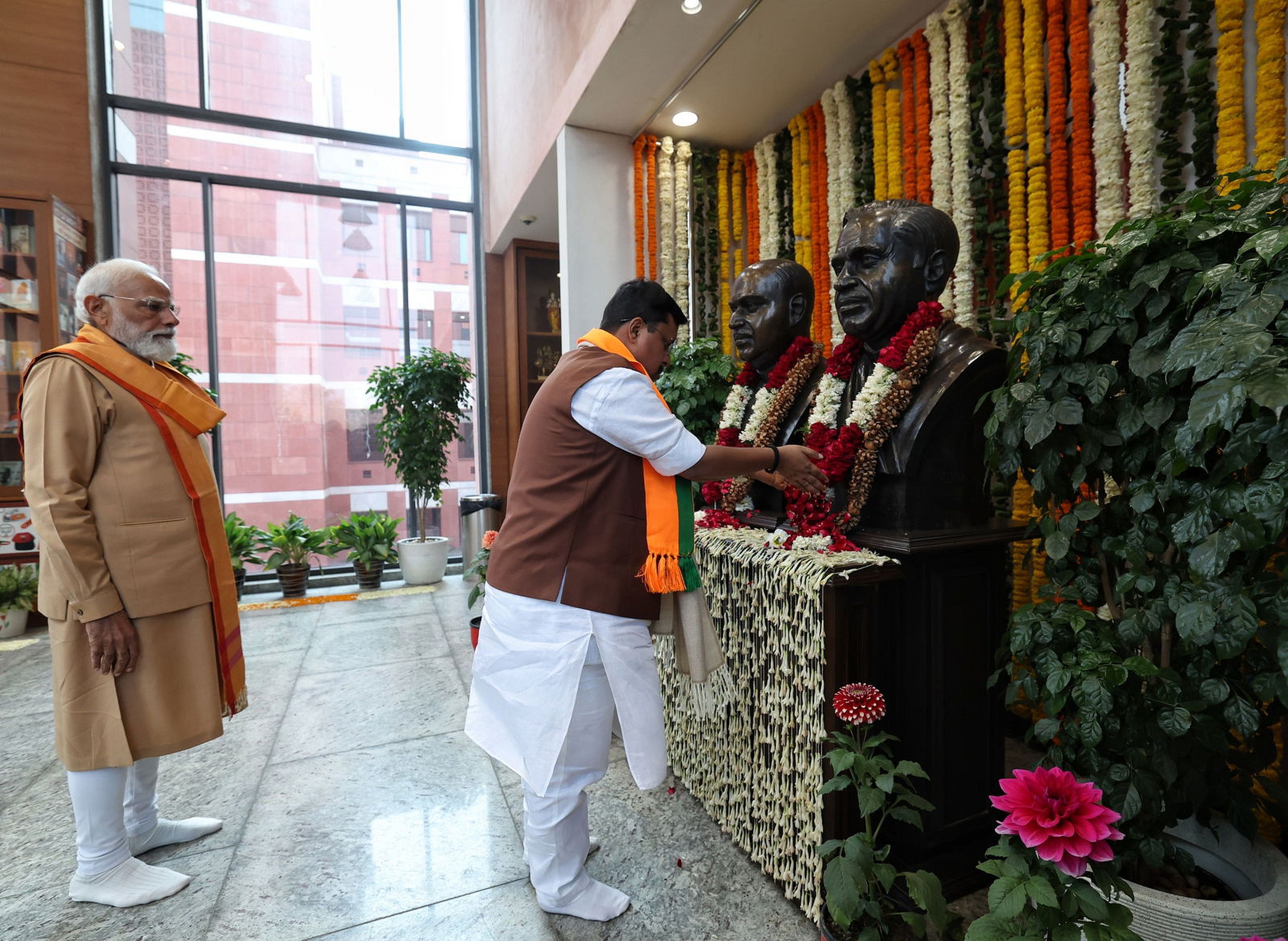Shri Vineet Jain Distinguished Guests Ladies and Gentlemen
I am very happy to be here today. The global economy is going through a period of uncertainty. At a time like this I am glad that so many participants not only from India, but also from abroad have taken the time to come here. I am sure all of us in India will benefit from the experience of other countries. I will take this opportunity to present to you some of my thoughts on the progress of the Indian economy and on the business environment.

Some of you may recall what I have said before - that true reforms are those which result in transformation in the lives of citizens. As I have said before, my goal is “reform to transform”. Let me start with the basics. What should be the basic guiding principles of economic policy in any country, particularly for the developing countries?
Firstly, we have to improve the use of our natural and human resources, to increase the value addition we can get from them. This means increasing the efficiency in allocation of resources. It means greater managerial efficiency. It means removing unnecessary controls and distortions.
Secondly, we should create new opportunities for citizens to progress and also give them a choice of opportunities. Opportunity is like oxygen to the aspirational citizen and we are keen that this is never in short supply. In simple terms, it means Sabka Saath, Sabka Vikas.
Thirdly, we have to increase the quality of life of the common citizen and even more so, the quality of life of the poor. Quality of life may have an economic aspect, but it is not economics alone. If a government is progressive, and runs an honest and efficient administration, the biggest beneficiaries are the poor. I know from my experience, that poor governance hurts the poor more than it hurts others. Therefore, improved governance is as important as economic reform.
We live in a globally connected world. Actions of one country affect another. Such actions are not only based on trade and investment but also in matters of pollution and environment. A poet had said that no man is an island. Today it can be said that no country can live alone. It is often said that all politics is local. To me, all economics is global. Indeed the distinction between domestic affairs and foreign affairs is increasingly losing relevance. For a country in the modern day, it is not sufficient that its economic policies should only address its domestic priorities. To me, India’s policies must be such that they make a positive contribution to the rest of the world.
Many of you are aware of the contribution India can make to the global economy at a time of economic stagnation in many parts. For the last four quarters, India has been the fastest growing large economy in the world. In 2014-15, India contributed 7.4% of global GDP in purchasing power terms. But it contributed 12.5% of global growth. Thus its contribution to growth is 68% higher than its share of the global economy. FDI in India has increased by 39% in the last 18 months, at a time when global FDI has fallen.
But a country’s contribution goes beyond economics. Protecting our planet from climate change is one of the most important tasks for this generation. If one country reduces its environmental footprint, it creates benefits for all others. It is for this reason that in the COP 21 Summit, India made far reaching commitments towards the larger welfare of the planet. In history, every country that has grown has increased its per capita emissions footprint. We are committed to re-writing that history. We are committed to reducing the emission intensity of our GDP by 33% by 2030 even while growing at a fast pace. For a country which is already at a very low base of per capita emission, this is a very ambitious target. We have committed that by 2030, 40% of our electric power capacity will be from non-fossil fuel. We have also committed to building an additional carbon sink of over 2.5 billion tonnes of carbon dioxide equivalent. This will be done by creating additional forest cover by 2030. This commitment is from a country with a very low per capita land availability. We have taken the lead in launching an international solar alliance, involving 121 countries falling between the Tropic of Cancer and the Tropic of Capricorn. This initiative will help many developing countries, from Africa to South America, to take advantage of developments in renewable energy around the world.
Let me now return to the three policy objectives I mentioned. I will start with the performance of Indian economy. Economists talk about GDP growth, inflation, investment, and the fiscal deficit as key economic parameters. Since this Government took office, growth has increased and inflation has decreased. Foreign investment has increased and the fiscal deficit has decreased. And despite a slow-down in global trade, the balance of payments deficit has also decreased.
Yet, such broad statistics give only a partial picture of what we are attempting, and what we are achieving. It is often said “the devil is in the detail”. But I believe that God is in the proper execution of many so-called details. It is these so-called details which, when done well, add up to a big picture.
You may be interested to know that • India’s highest ever urea fertiliser production was achieved in 2015.
• India’s highest ever production of ethanol as blended fuel, benefiting sugar cane farmers, was in 2015.
• The highest number of new cooking gas connections to the rural poor was achieved in 2015.
• India’s highest ever output of coal was achieved in 2015.
• India’s highest ever generation of electricity was achieved in 2015
• India’s highest ever quantity of cargo handled by major ports was in 2015.
• India’s fastest average turnaround time in ports was in 2015. • India’s highest ever increase in railway capital expenditure was achieved in 2015.
• India’s highest ever number of new highway kilometres awarded was in 2015.
• India’s highest ever production of motor vehicles was achieved in 2015
• India’s highest ever software exports were achieved in 2015.
• India’s highest ever rank in World Bank Doing Business indicators, was achieved in 2015.
• India’s highest ever foreign exchange reserves were achieved in 2015.
When I give these figures, it is important to remember that in the preceding years, many of these indicators were moving in the opposite direction. Not only have many indicators improved, but they have improved by large margins. For example, in 2013-14, the total number of National Highway kilometres awarded was about 3500. This more than doubled in the first year of this Government to nearly 8000 kilometres, an all-time high. This year we are planning to award 10,000 kilometres.
Let me give you more examples of quantum leaps. The Shipping Corporation of India which made a loss of Rs. 275 crores in 2013-14 made a profit of Rs. 201 crores in 2014-15. This is a turnaround of Rs. 475 crores in one single year.
In 2013-14, India accounted for just 0.1% of global demand for energy efficient LED lighting. In 2015-16, it is 12%. Indian LED bulbs are now the cheapest and most competitive in the world, costing less than a dollar versus a global average of 3 dollars. In 2013-14, India commissioned 947 megawatts of solar power plants. In 2015-16, this will rise to over 2500 megawatts. It is expected to reach 12,000 megawatts in 2016-17. India’s share of the global solar energy market will rise from 2.5% in 2014 to 18% in 2016. India’s contribution here is not merely in increasing the share of clean energy. Its other contribution is that the huge increase in scale has enabled producers to cut prices benefitting the whole world. In 2013-14, 16,800 kilometres of transmission lines were added. In 2014-15 this rose to over 22,000, an increase of 32%. In the power sector as a whole, the cost of power has declined by over 30%.
Let me turn to the second aspect — improving opportunities. I believe in the politics of empowerment. I believe in empowering the people to improve their own lives. We undertook the world’s largest and most successful financial inclusion programme. It has brought over two hundred million unbanked people into the banking system. In the early days of this programme, sceptics felt that these accounts would have no balances. You will be surprised to know that today these accounts have a balance exceeding Rs. thirty thousand crores or over four billion dollars. We have also issued a record number of debit cards to them. India is now one of the few countries where the market share of an indigenous credit card brand exceeds 33%.
We have introduced a new and comprehensive program of crop insurance. This empowers farmers to give their best, with the State providing cover against risks beyond the farmer’s control.
We have introduced soil health cards to empower our farmers. The card will tell every farmer the exact character of his soil. This will enable him to increase crop yield, reduce over-use of chemical inputs and fertilizer and restore soil health.
Entrepreneurship is one of India's traditional strengths. It was sad to see it neglected in the last few years. “Business” and “profits” had become bad words. We have changed that. We need to value enterprise and hard work, not wealth. Our programs ranging from MUDRA to Start Up India and Stand-Up India provide opportunity to the hard working and to the enterprising. In so doing, we have placed special emphasis on Scheduled Castes, Scheduled Tribes, Other Backward Classes and women. We are empowering them to become masters of their own destinies.
Creating opportunities for cities and towns to grow is very crucial. Urban areas are an engine of growth. A key initiative for urban transformation is the Smart City Mission. The Mission has several ‘firsts’. It is the first time that certain areas in cities will be comprehensively developed in a systematic and qualitative way. These areas will act as ‘light houses’ which will eventually influence the rest of the city. It is the first time that there has been such extensive citizen consultation. Nearly 2.5 million people participated through contests, discussions, polls, blogs and talks on the MyGov platform. This is a major break from the top-down approach to urban planning. It is the first time that allocation of funds in a government scheme is done not by decisions of Ministers or officers but on the basis of competition. This is a good example of competitive and cooperative federalism.
As I mentioned earlier, the role of a Government does not end with the economy alone. There are many non-economic dimensions which are vital for ensuring the welfare of the citizens. Good governance is crucial. We have taken numerous steps which have transformative potential. We have ended the era of high level corruption. This is a fact acknowledged by Indians and foreigners, and by critics and supporters of this Government. This is not an easy achievement. We have ended political interference and crony capitalism in nationalized banks. We have for the first time appointed several heads of public sector banks from the private sector. Transparent auctions have cleaned up the natural resources sector which was riddled with scandals.
Many experts have commented on the need to reduce subsidies. The new universal access to banking through the Jan Dhan Yojana, has enabled plugging of huge leakages in subsidies. In developing countries, fuel subsidies are generally very difficult to tackle. We have successfully decontrolled cooking gas prices. We are now operating the world’s largest direct benefit transfer scheme for cooking gas. Subsidies are transferred to the bank account of households. Through electronic verification, multiple and bogus connections are eliminated. This enables genuine beneficiaries to get what they deserve while eliminating those who are not eligible. This has substantially reduced the subsidy.
Another subsidized fuel is kerosene, used by the poor for cooking and lighting, and distributed by state governments. There is clear evidence that a large quantity of subsidized kerosene is misused and diverted. We have begun a pilot in thirty three districts where kerosene will be sold at market prices. The difference between market price and the subsidized price will be transferred directly to bank accounts of those who are poor. The poor will be properly identified through bank accounts and biometric identification through Aadhaar. This will eliminate duplicate, non-eligible and bogus consumers. This elimination will reduce the total subsidy. We have decided that 75% of the savings from this will be passed on to the states. Thereby, we have encouraged state governments to implement this in all districts.
The experience of Chandigarh, shows that this is possible. In April 2014, there were 68,000 beneficiaries of subsidized kerosene in Chandigarh. A campaign was launched to issue gas connections to all eligible families. 10,500 new gas connections were issued. Kerosene quotas were stopped for 42,000 families who already had gas connections. By 31st March, 2016, Chandigarh will be declared kerosene-free. Believe it or not, till date, the saving achieved in kerosene consumption through this initiative is 73%!
Two days ago at a meeting with Chief Secretaries of the States, I was reviewing implementation of various pension schemes. I was pleasantly surprised to see that there had been noteworthy reduction in leakage, simply by eliminating those who were double counted and who were ineligible. In some states, a reduction of 12% in subsidies has been achieved without any harm to the poor.
Another major subsidy is on fertilizer. A substantial quantity of subsidized urea is diverted illegally to use in the production of chemicals. We have introduced a simple but effective technical solution: neem-coating of urea. The organic neem coating makes the fertilizer unsuitable for diversion. We have now achieved 100% neem coating in both domestic and imported urea. A significant side benefit has also happened. The collection of neem leaves for urea has become a new income earning opportunity for rural women.

I know that several of you are economists. Economists generally believe that human beings are rational. They believe people will not give up a benefit for which they are entitled. Last year, I gave a call to citizens. I asked them to give up their cooking gas subsidies, if they felt they were not poor enough to get it. We also made a promise. Every connection given up, would be used to give a new gas connection to a poor family. Poor women in rural India use firewood or biomass and suffer greatly because of smoke. This scheme is entirely voluntary. You may be surprised to learn that nearly 6.5 million people in India have responded to my call. It warms my heart, to see that so many of them have come forward, with no compulsion to benefit the poor and give up their subsidies. Already, over 5 million new connections have been given to the poor. It is a sign of the public spirit and the self-respect which prevails among Indians and shows the potential of citizen action. Another example where citizens have responded is in the case of Khadi. In October 2014, I had appealed to all Indians to buy at least one Khadi garment. In response, Khadi sales have increased substantially.
We have taken a creative approach to tackling the problem of loss making power distribution companies. Under the UDAY programme, short term debt relief is given by state governments taking over bank loans. But this is accompanied by strong long term conditions to hold both the distribution companies and the states. This will create the conditions for rolling out 24x7 power supply.
Our country suffers from an excess of old and unnecessary laws which obstruct people and businesses. We began the exercise of identifying unnecessary laws and repealing them. 1,827 Central laws have been identified for repeal. Out of these, 125 have already been repealed. Bills for repealing another 758 have been passed by the Lok Sabha and are awaiting the approval of the Upper House.
I have given just a few examples of the potential of improved governance. The benefits of improved governance and reduced corruption are lasting and profound. If our policies are studied closely, you will find that many are popular, but none are populist. Every one of the changes we have made is in the direction of good governance and rationality.
I have been referring to cooking gas, fertilizer and kerosene subsidies. I must confess that I am surprised by the way words are used by experts on this matter. When a benefit is given to farmers or to the poor, experts and government officers normally call it a subsidy. However, I find that if a benefit is given to industry or commerce, it is usually called an “incentive” or a “subvention”. We must ask ourselves whether this difference in language also reflects a difference in our attitude? Why is it that subsidies going to the well-off are portrayed in a positive manner? Let me give you an example. The total revenue loss from incentives to corporate tax payers was over Rs. 62,000 crores. Dividends and long term capital gains on shares traded in stock exchanges are totally exempt from income tax even though it is not the poor who earn them. Since it is exempt, it is not even counted in the Rs. 62,000 crores. Double Taxation avoidance treaties have in some cases resulted in double non-taxation. This also is not counted in the Rs. 62,000 crores. Yet these are rarely referred to by those who seek reduction of subsidies. Perhaps these are seen as incentives for investment. I wonder whether, if the fertiliser subsidy is re-named as “incentive for agricultural production”, some experts will view it differently.
I am not arguing that all subsidies are good. My point is that there cannot be any ideological position on such matters. We have to be pragmatic. We have to eliminate bad subsidies, whether or not they are called subsidies. But some subsidies may be necessary to protect the poor and the needy and give them a fair chance to succeed. Hence my aim is not to eliminate subsidies but to rationalize and target them.
In 19 months, much has been achieved. Much more is expected of us. And there are challenges ahead. Yet, I am now confident • that we can successfully go forward, • that we can successfully go faster, • and that we can do so in a way that will benefit the common people.
When the people of a nation make up their minds to go forward and when the power of the people is with us, hard challenges become huge opportunities. This confidence of mine is not formed in a vacuum, but founded on my experience over the last 19 months.
We inherited a struggling economy, just recovering from a currency crisis. In less than two years, we have taken India to the top of global league tables of foreign investment and growth. Friends, we have a long way to go but I feel ours is a journey well begun. Like all long journeys, there may be obstacles on the way, but I am confident we will reach our destination. We have created a platform for a new future and for a new India:
An India where every child is born safely and maternal and infant mortality are below world averages,
An India where no person is houseless,
An India where every town and every village, every school and every train, every street and every house, are clean and sanitary,
An India where every citizen has access to good health care,
An India where every village has 24x7 electricity,
An India where every city is vibrant and livable,
An India where girls are educated and empowered,
An India where every boy and every girl is skilled and ready for productive employment,
An India where agriculture, industry and services provide well-paying jobs to all who need them,
An India where farmers know the nature of their soil, have the best inputs and reach global levels of productivity,
An India where enterprises, large and small, have access to capital and credit,
An India where start-ups and other businesses provide innovative solutions,
An India which is at the forefront of a global digital economy,
An India which leads the world in clean energy,
An India where every citizen has basic social security and a pension in old age,
An India where citizens trust Government and are trusted by Government.
And above all, a transformed India where all citizens have the opportunity to reach their full potential.
Thank you.






